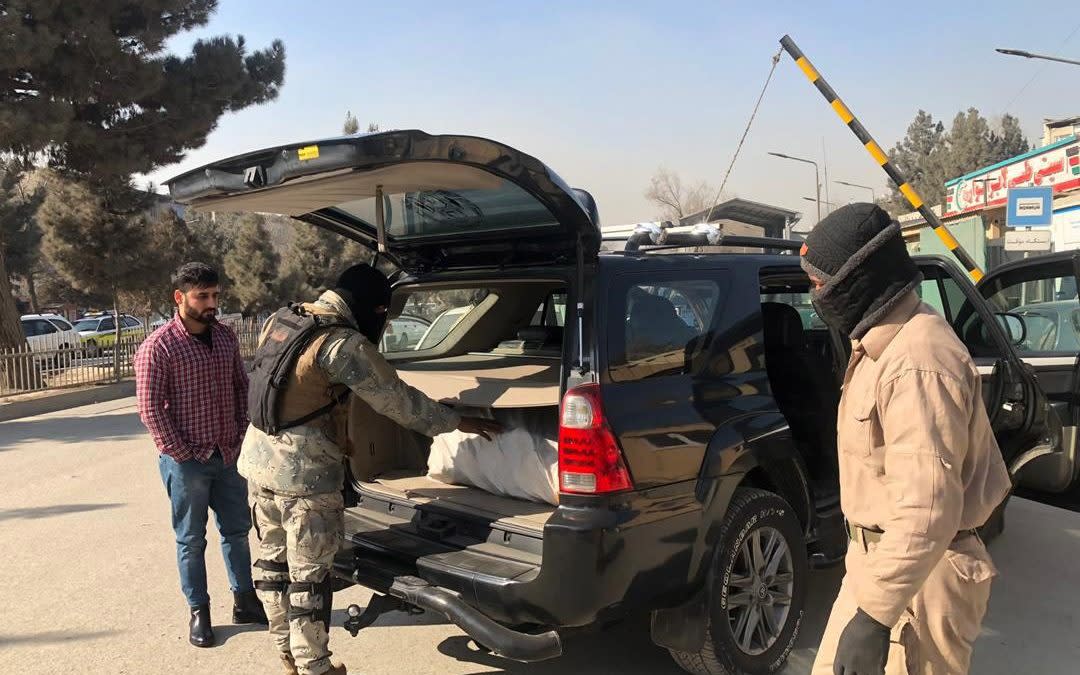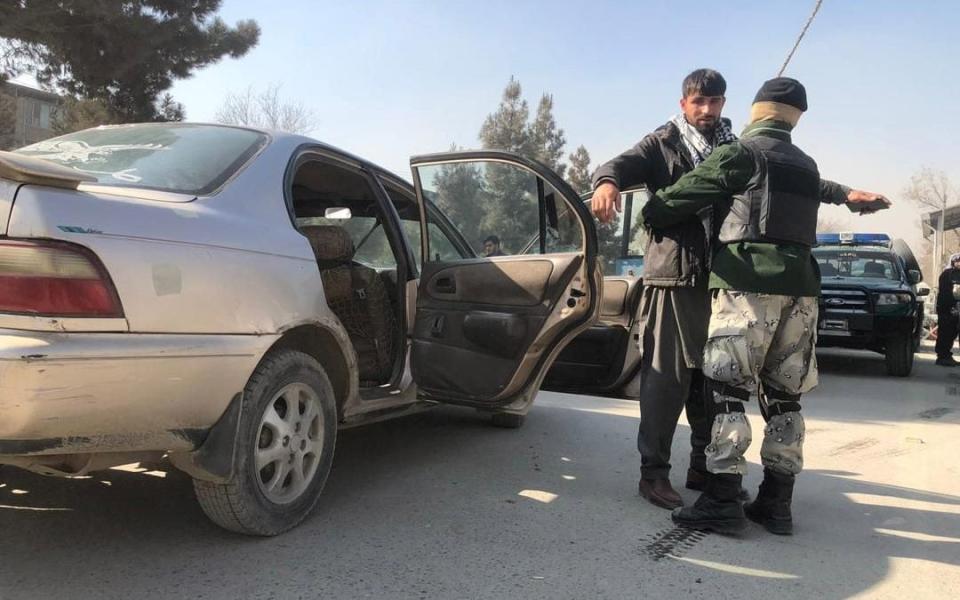Afghan journalists fear for their lives as Taliban suspected in spate of deadly attacks

In a three decade-long career on the front lines of Afghanistan's unrelenting conflict, one senior journalist says he has never felt so scared.
Each day the reporter, who fears to give his name, must change his route to work and the time he heads to the office. Neither during communist rule, nor under the regimes of the Mujahideen nor Taliban did he ever feel so under threat, he says.
An intense assassination campaign striking civil society figures including journalists, human rights activists and bureaucrats has made every commute through Kabul's traffic a peril.
“I have never ever felt such pressure on my life as I feel now,” he told the Telegraph.
Two female supreme court judges became the latest victims on Sunday when they were shot down on their way to work.
The spate of almost daily unclaimed killings is thought to be largely the work of the Taliban, in what is feared to be in part a chilling new campaign to silence liberal voices ahead of any power-sharing negotiations.
Many of the attacks appear aimed at removing advocates of a liberal society at odds with the conservative religious creed espoused by the militants. The killings are feared to be a concerted effort to cow ideological opponents ahead of any talks to find a political settlement.
“The Taliban have two major problems: one is the media and the second is a vibrant civil society,” said the journalist. “Therefore the Taliban want to tackle them.”

The Taliban officially deny involvement in the attacks, which have included street shootings and the placement of magnetic, or sticky bombs on victims' cars.
Yet some commanders admitted to the Telegraph that they considered prominent liberals a target.
“All those killed were standing with the occupation,” said one junior commander called Mujahid Rahaman. “Afghan journalists and civil society are evil. They are dancing for the occupation of Afghanistan, misguiding Afghans and spreading secularism. They must stop urgently,” he said.
The killings are thought to include a tangle of copycat attacks, personal disputes and assaults by other groups, officials and diplomats believe, but most are directed by the Taliban.
Saad Mohseni, whose prominent Moby media group has lost 11 journalists in the past five years, said the current campaign was an escalation of a long-standing Taliban tactic.

He said: “They intimidate people, their critics, and they get rid of more moderate voices. It also gives people the sense that the state cannot protect you whereas we can, and it builds pressure on the government to make concessions when it comes to peace talks.”
The killings bear grim echoes of earlier phases in the country's four-decade war when intellectuals and liberals were also snuffed out by conservatives wanting to control society.
Appeals to the Taliban to impose a ceasefire as part of stumbling peace talks with the Afghan government, have so far been rejected. Meanwhile, last week the American government announced US troop numbers had fallen to 2,500, the lowest level since 2001. Plans are in place to fall to zero by May to abide by a withdrawal deal with the Taliban, a Pentagon statement said.
Afghanistan's vice president, Amrullah Saleh, accused America of making too many concessions to the militants.
"You want to negotiate with terrorism, it's your choice. But we are telling you, don't be deceived," he told the BBC. "The Taliban were terrorists. They are terrorists today. They are killing women, activists, civil rights activists," he said.


